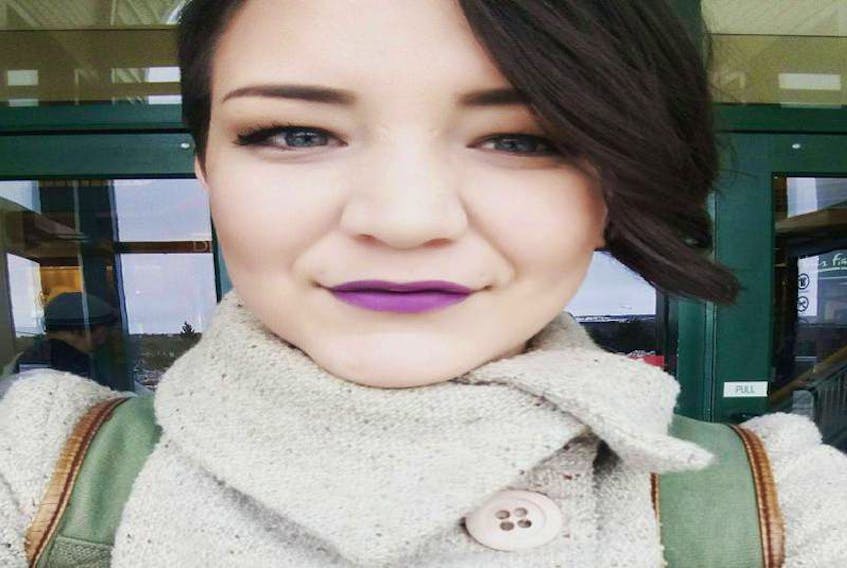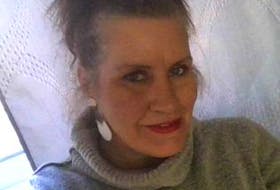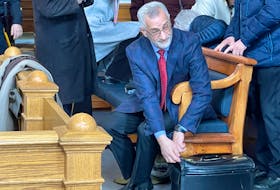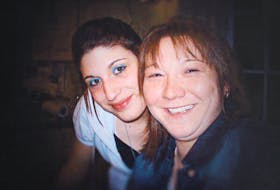Delilah Saunders, one of Canada’s leading advocates for Indigenous rights, is in hospital in Ottawa with acute liver failure.
Saunders, who recently received Amnesty International’s human rights award for her advocacy work, went to the hospital last Friday because she was not feeling well.
Soon after being admitted, it was discovered that she had acute liver failure caused by acetaminophen (Tylenol) toxicity in conjunction with past alcohol consumption.
The 26-year-old, originally from Happy-Valley Goose Bay, requires a liver transplant, but is not eligible to receive one.
According to the Trillium Gift of Life Network’s criteria document for liver transplants, patients are ineligible if there is “any alcohol and/or illicit drug misuse within six months.” The document goes on to state, “For patients with alcohol associated liver disease: inability to absolutely abstain from alcohol and/or illicit drug use for six months.”
Saunders’ friend, Rebecca Moore, says Delilah has been receiving treatment for alcohol addiction.
“She’s been making strides in her own personal recovery journey lately, and she’s hit a few milestones, and she was doing very, very well before this happened. This liver failure was Tylenol-induced because she had jaw pain, and she wasn’t aware that she had such liver damage.”
Moore says many of Saunders’ friends and family have asked if they can donate a part of their own liver if it is a match, but “the answer is still no,” said Moore.
“They won’t let us because of this discriminatory policy. Essentially they are punishing her because of her past history.”
Another friend, Ossie Michelin, noted the extensive trauma Saunders has experienced during her life.
"The community in Labrador, the national Indigenous community as a whole, we can’t afford to lose her. We need Delilah and her voice." — Ossie Michelin
Saunders’ sister, Loretta Saunders, was murdered in 2014. Saunders also has many residential school survivors in her family.
“Because of her exposure to trauma … she turned to alcohol to self-medicate,” Michelin said. “So, because of her previous addictions that she’s had in the past, she is getting denied this life-saving liver transplant.”
Saunders’ friends have started a social media campaign and an online petition asking Trillium Gift of Life Network to “waive its discriminatory policy of enforcing six months of sobriety for patients suffering from a substance use disorder.”
The petition states that the policy is “systemic discrimination based on ethnic origin given that it affects Indigenous people disproportionately, considering many suffer from substance use disorder as a consequence of intergenerational trauma inflicted by residential schools.”
Meanwhile, Saunders’ friends say they are shocked this is happening.
“Delilah is 26 years old. No one would expect anything like this. No one had any idea this was coming,” said Michelin. “She’s just one of the strongest people I know, with one of the biggest hearts I’ve ever met, and I can’t believe something like this is happening to my friend.”
He is urging people to sign their online petition and to contact Trillium Gift of Life Network directly.
“Just to say, ‘Please waive this policy.’ Let our friend live. We want our friend to keep living. Especially after all that she has done for missing and murdered Indigenous women. (She’s) a strong advocate for land and water, Indigenous rights, and she’s one of the strongest Indigenous female voices that we have in this country.
“The community in Labrador, the national Indigenous community as a whole, we can’t afford to lose her. We need Delilah and her voice.”
Trillium Gift of Life Network did not respond to a request for comment before The Telegram’s deadline.
Meanwhile Thursday, The Ottawa Hospital noted it does not perform liver transplants, but does refer patients who need them to facilities that perform the procedure (such as those in Montreal, Toronto and London), and arranges communication with those health-care providers on behalf of its patients. Trillium Gift of Life Network sets the listing criteria.









